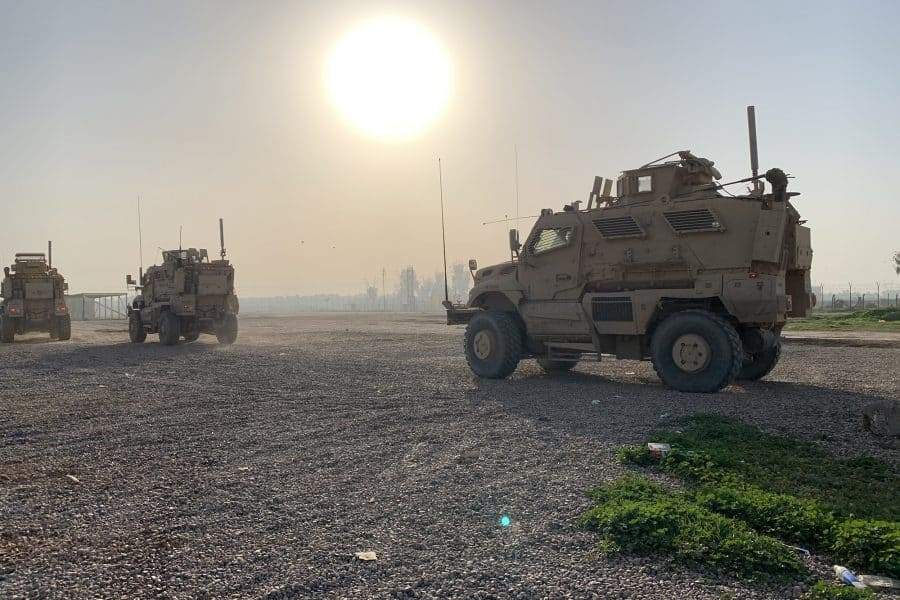U.S. Officials Say Iranian Militias Likely Responsible for Camp Taji Attack

U.S. officials are blaming Iranian-backed militias for the March 11 rocket attack that killed three coalition service members in Iraq, and the Pentagon is looking at options for a response.
Defense Secretary Mark Esper told reporters the militias responsible for the attack are Iranian backed, and the White House has given him the authority to take actions to protect American forces in Iraq, Reuters reported.
CENTCOM commander Gen. Kenneth McKenzie told the Senate Armed Services Committee on March 12 that “while we are still investigating the attack, I will note that the Iranian proxy group Khatib Hezbollah is the only group known to have previously conducted an indirect fire attack of this scale against U.S. and coalition forces in Iraq.”
The command is “working hard right now as we speak” to identify who fired the 18 Katyusha rockets on Camp Taji, near Baghdad, which killed two U.S. service members and a soldier from the United Kingdom. UK Defense Minister Ben Wallace said in a statement that the incident was a “cowardly and retrograde attack.”
McKenzie told lawmakers that Iranian proxy groups have been conducting “gray zone” attacks such as this in response to the U.S. maximum pressure campaign on Iran. Tehran cannot respond in a diplomatic or economic way to this pressure, which is largely through sanctions, and so their only option is to attack militarily. While the country has conducted state-level attacks, such as the Jan. 7 ballistic missile strike on al-Asad Air Base in Iraq, much of this military action is taken by militias that receive weapons, funding, and direction from Iran.
The Iranian-backed group Khatib Hezbollah was responsible for the December rocket attack on a U.S. location in Iraq, which killed an American contractor. This prompted a series of U.S. strikes on the militia, and ultimately the January drone strike in Baghdad that killed Iranian military leader Qasem Soleimani.
While some forces deployed to the region in response to these tensions have returned home, there is still a surge of troops in the Middle East. This includes two aircraft carriers and additional combat aircraft, with an approximate increase of 10,000 troops, McKenzie said.
That is still a “small fraction” of the total American military, and will not take away from the broader Defense Department’s emphasis on the National Defense Strategy and preparing for great power competition, he said.
Photo: Army National Guardsmen conduct movement to a range at Camp Taji, Iraq, on Feb. 7, 2020. Two Americans and one British service member were killed in a rocket attack at the base on March 11, 2020. ARNG photo by Capt. Richard Wharton.











